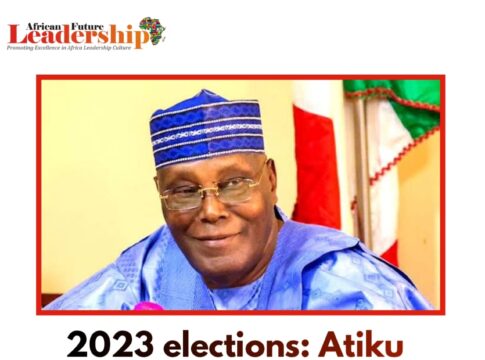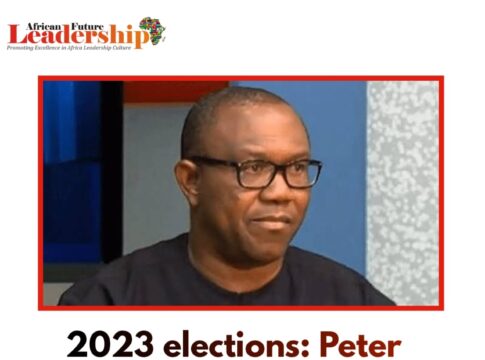Asiwaju Bola Ahmed Tinubu, who served two terms as governor of Lagos, the richest state in Nigeria, is probably the most talked about person in this year’s election.
There are endless debates about his age, name, health status, professional profile and the validity of his university education or about the source of his wealth as he came under the most scrutiny.
Many believe that Mr. Tinubu, 70, is one of Nigeria’s wealthiest politicians, though there are no official records.
The most visible part of his wealth is a large house that sits in a small garden in the Ikoyi area of Lagos – an upmarket part of Nigeria’s business district. It was here on Election Day in 2019 that observers saw two armored cars, like bullion cars used by banks to transport money, drive up to his door. His aides denied later allegations that he was involved in vote buying.
But questions about his wealth have been raised. In December, he told the newsmen that he inherited some real estate which he then invested, but in the past he also said he became an “instant millionaire” while working as an auditor at Deloitte and Touche.
He said he had saved $1.8m (£1.5m) from his wages and other allowances, nearly the same amount found in accounts linked to him in a 1993 dispute with the US authorities.
In documents that are publicly available, the US Department of Justice alleged that from early 1988, accounts opened in the name of Bola Tinubu held the proceeds of sales of white heroin, a banned substance.
Kevin Moss, the special agent that investigated the operation, alleged that Mr. Tinubu worked for their prime suspect Adegoboyega Akande.
READ MORE: 2023 elections: Atiku Abubakar and the US Senate
The agent said Mr. Tinubu initially admitted to him on the phone that he knew Mr. Akande, but later recanted and said he had had no financial transactions with him.
While the court confirmed it had cause to believe the money in the bank accounts were the proceeds of drug trafficking, Mr. Tinubu and the others denied the allegations, and the court never made a final order about the money’s origins.
Instead, Mr. Tinubu, who was not personally charged over the money, reached a compromise settlement with the authorities and forfeited $460,000.
Mr. Tinubu has always denied any links to the drugs trade and his spokesman, Festus Keyamo, said the forfeited funds were part of a civil forfeiture and not a criminal one.
READ MORE: Bayelsa Government to Partner FMBN on Housing Development
Last year, he also reached an out-of-court settlement with accountant Oladapo Apara, who had fallen out with Mr. Tinubu.
Mr. Apara was a founder of Alpha Beta Consulting, established when Mr. Tinubu was governor and given the lucrative contract to track taxes in Lagos state, which it still holds.
The accountant alleged Mr. Tinubu had a 70% controlling interest in the company through proxies – and the firm received about a 10% commission on revenues collected, which he estimated to be $3.48bn between 2002 and 2018.
Mr. Tinubu denies this, saying he does not receive commissions on taxes received by the Lagos State government.
Mr. Apara said he was kicked out of the firm in 2010 after he alleged that some funds had been misappropriated – and began a long legal battle to seek redress.
He argued he could not be sacked as a founder of the firm and demanded compensation from Mr. Tinubu, which resulted in a court case in 2021.
In September 2018, he also tweeted that he had written to Nigeria’s financial-crimes regulator, accusing Alpha Beta of tax evasion – the actual letter that accompanied the tweet, which detailed the allegations, has since been deleted from his account.
Alpha Beta denied the allegations and said Mr. Apara had been sacked for fraud, which he denied.
Mr. Tinubu has consistently denied links to the firm, but was a party to an undisclosed settlement between Alpha-Beta and Mr. Apara last June, leading to the termination of the parties’ claims against each other.
When asked about the settlement, the US allegations and the questions over his wealth but he Mr. Tinubu did not respond to requests for comment.




